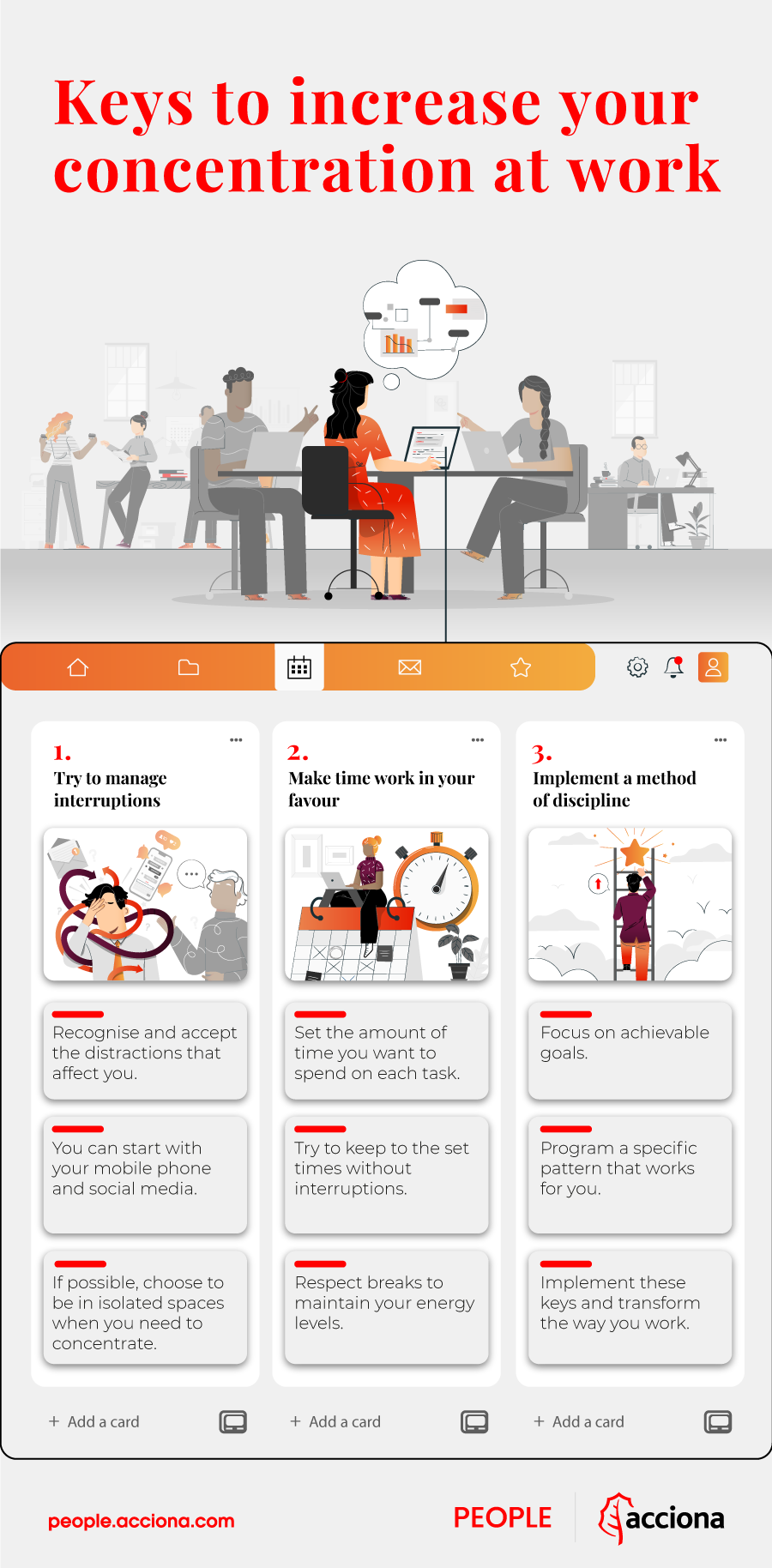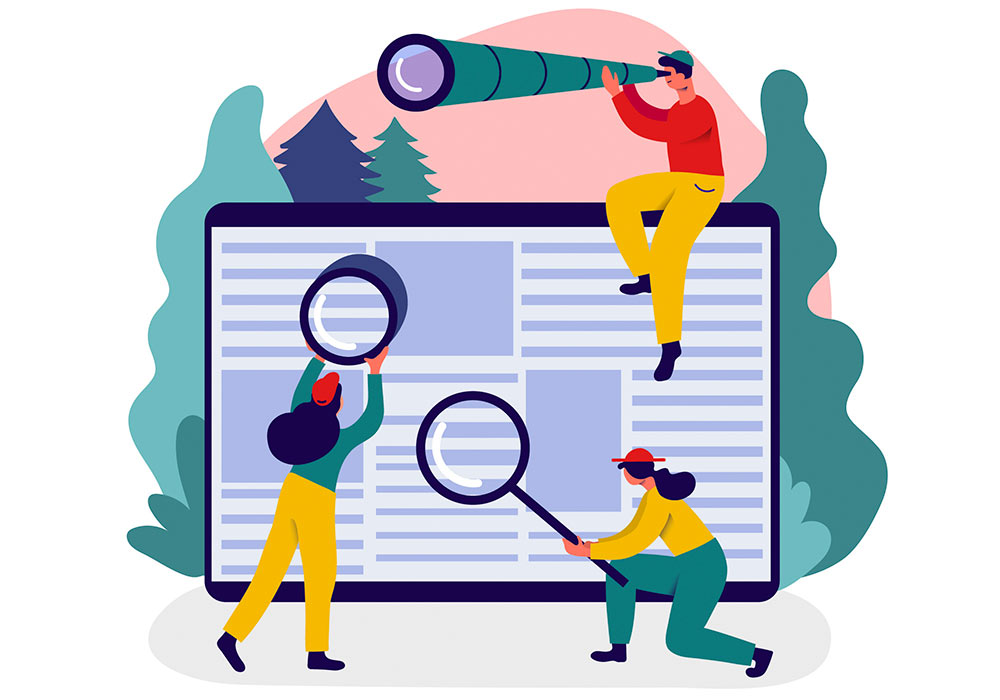Our ability to concentrate is decreasing year by year. While in 2014 we could pay attention to a video for two and a half minutes, today that figure is down to 47 seconds. In a hyper-connected world that encourages multitasking, it’s not easy to focus on what we’re doing. Notifications, video calls, meetings and so on. We find ourselves in an era of perpetual interruptions, where information flows like an incessant river that threatens to sweep us away in its current.
In this whirlwind of digital distractions, how can we immerse ourselves in our tasks and achieve our full professional development? The answer may lie in “deep work”, a concept that invites us to rediscover the subtle art of concentration.
What will I read about in this article?
Deep work vs. shallow work
Cal Newport, professor of computer science at Georgetown University (Washington, USA), argues that in a world full of distractions, it is our ability to focus that makes the difference. In his book “Focus. Tips for success in a scattered world”, Newport reflects on how to put concentration at the centre of the debate on work organisation and office layout.
“In a world full of distractions, it is our ability to concentrate that makes the difference.”
I’m sure that at some point a colleague has said to you, with a trace of guilt, “I haven’t stopped all day and I feel like I haven’t done anything I had planned to do today“. Maybe it’s even happened to yourself: you answer emails, attend meetings, catch up with your team and, before you know it, it’s time to go home.
To address this, Newport distinguishes between “deep work” and “shallow work”, encouraging people to avoid distractions, which cause them to lose focus and stop wasting time and start doing the work that actually brings the most value.
The expert defines deep work as any professional activity carried out in a deep state of attention, without distractions, which requires the use of our full cognitive capacity. For him it all boils down to this simple formula:
(Time spent) × (Intensity of concentration) = High added-value work performed.
The author points out that, through periods of 60 and 90 minutes, great states of attention and concentration can be established without distractions and ensuring that the mind works at its maximum splendour and potential.
“Deep work is any professional activity performed in a deep state of attention, without distractions, which requires the use of the totality of our cognitive capacity”.
Newport’s tips for staying focused at work
Companies have a wide range of tools and resources at their disposal to help employees increase their concentration at work through deep work. For Newport, the first step is to provide a space for this purpose.

The integration of deep work in offices
Most offices are created mainly for superficial work, to encourage serendipitous discoveries and creativity while facilitating teamwork and meetings. We could mention both open-plan offices and hot-desking models, which we’ve already previously discussed here. The advantages of this type of design are well known to all. But sometimes the most concentrated moments at work require other spaces that provide greater intimacy.
As a possible solution, Newport mentions US architect David Dewane, creator of the “eudaimonia machine”, a design concept based on the creation of several rooms dedicated to deep work separated by soundproof walls, ideal for immersing oneself in tasks without interruption.
Managing distractions and optimising time
Likewise, another fundamental key is to discover, recognise and accept the distractions that people have around them. How much time do you spend looking at your mobile screen without even realising it? Picking up our device and entering a social network has become an almost automatic gesture for many of us. Mobile devices go from being, many times, a useful tool to an obstacle for our concentration levels at work.
The next step will be what’s called “time blocking“. Here the person chooses certain times to work and focus on the goal to be achieved. You may decide, for example, to devote the morning to tasks that require maximum concentration and spend the afternoon on more superficial work, such as answering emails.
Similarly, the author stresses the importance of establishing and observing rest times. This is essential to avoid burnout and to maintain our energy levels.

To work deeply requires a great deal of willpower. You have to programme a specific pattern and develop rituals to fine-tune your concentration before you start each session. According to Newport’s standards, the discipline must be almost monastic, as if we were retreating to meditate in a shelter. In short, the challenge is to learn to focus in a world that’s increasingly scattered and full of distractions.
Sources:
- https://people.acciona.com/es/tendencias-e-inspiracion/interrupciones-trabajo/
- https://www.welcometothejungle.com/es/articles/deep-work-concentracion-equipo-consejos?q=84ebecd8aeda4875583a66b9fabf5ee1&o=6410


